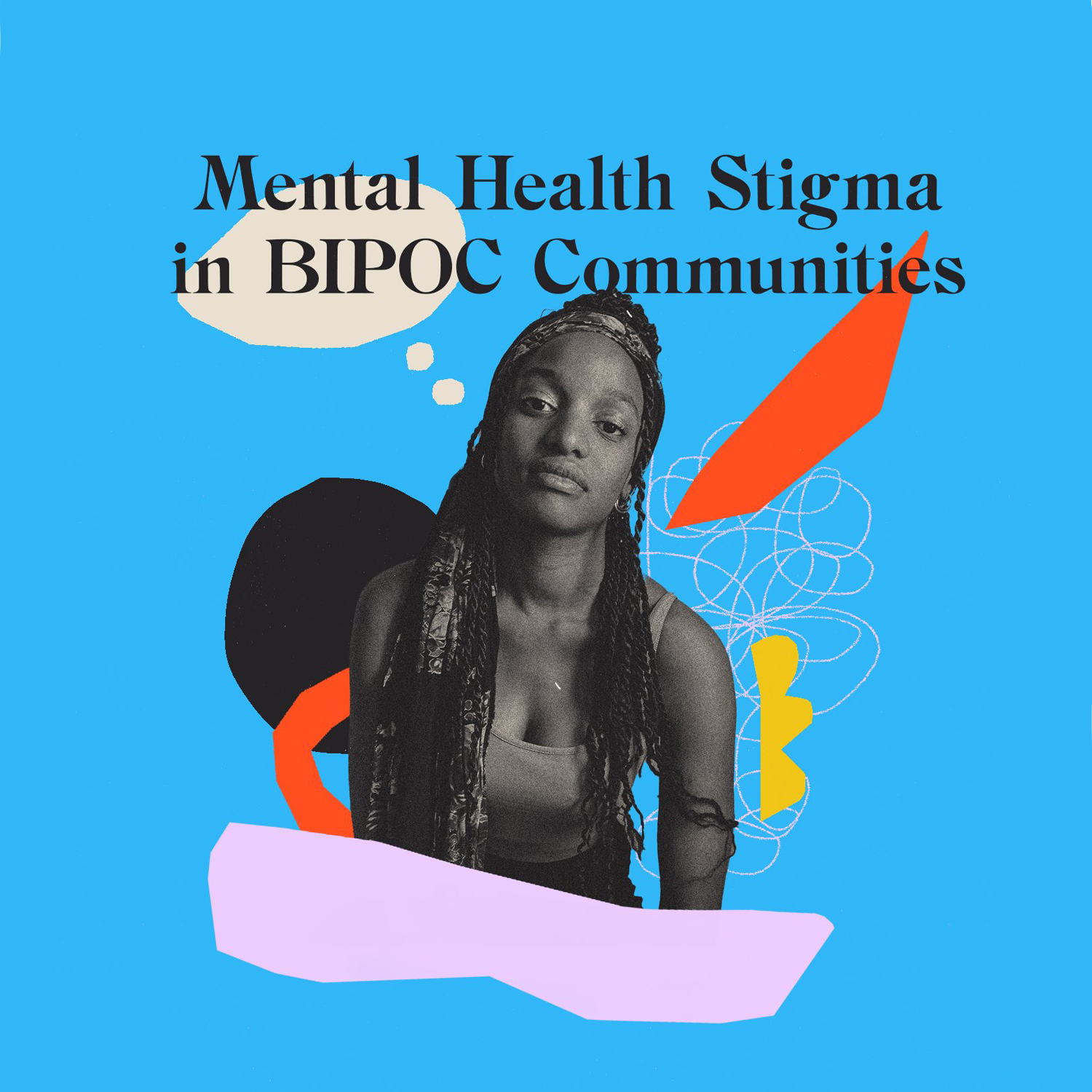Mental Health Stigma in BIPOC Communities
By Hanna Blankenship
What is mental health stigma?
Mayo Clinic defines stigma as when, "someone views you in a negative way because you have a distinguishing characteristic or personal tait that's thought to be, or actually is, a disadvantage (a negative stereotype)." and is directly connected to discrimination. Those who suffer from mental health illnesses, often experience direct (such as someone making a negative remark about your mental illness or your treatment), subtle (such as someone avoiding you because the person assumes you could be unstable, violent, or dangerous due to your mental illness), and internal discrimination (such as feeling that your illness is your fault) that can prevent someone from seeking treatment and worsen mental health symptoms.
Why is mental health stigma so prominent in BIPOC communities?
For many BIPOC communities, the internal stigma around mental health stems from a lack of understanding of what mental illnesses truly are. When we look back on our history, we see a multitude of examples in which we were able to overcome hardships. So, for some of us, mental health challenges like depression or anxiety can seem like feelings that we simply weren’t strong enough to overcome or push away. However, mental health issues can affect anyone. They’re not a sign of weakness and are as much an illness as cancer or diabetes.
Deconstructing Stigma in Vermont
UVM Health Network’s Porter Medical Center adopted a new model in hopes of breaking down the barriers to mental health care. Integrating mental health services into primary care, as of fall 2021, Porter Medical Center has its own on-site psychiatrist and therapist available to meet with patients and consult with primary care physicians. This allows primary care providers to have advanced in-house education on psychiatric medications and treatments on-site when needed. It also removes the pressure for patients who might feel uncomfortable going to a physiatry office due to stigma, allowing them to receive mental health care in the anonymity and comfort of their primary care office. This privacy empowers people to utilize any services they may need and breaks down barriers to asking for help.
McLean Hospital in Belmont, MA’s project “Deconstructing Stigma: Changing Attitudes About Mental Health” is a series of larger-than-life photographs and interviews with people from across the United States that challenges the misconceptions and stigma around mental illnesses. A Vermont-focused exhibit of the project can be found at the Burlington International Airport focusing on members of the local community whose lives have been affected by mental illnesses and substance abuse. Next time you travel through a more-than-100-foot walkway between the parking garage and the airport, be sure to keep a look out for the powerful exhibit!
What can we all do to reduce the stigma?
Acknowledge the centuries of pain and trauma BIPOC communities endured and are still trying to recover from, that impact internal stigma in their communities.
Educate people that mental health illnesses are real illnesses like cancer or diabetes that can affect anyone and can require treatment to overcome.
Reinforce the idea that those who suffer from mental health illnesses are not weak and the strongest thing they can do is seek out help and treatment.
Learn More
STAMP OUT STIGMA
Jefferson Center News - Mental illness doesn’t discriminate, so why do BIPOC communities have difficulty accessing care?
Texas A&M Health - How stigma impacts access to mental health care for Black, Indigenous and people of color
Mayo Clinic - Mental health: Overcoming the stigma of mental illness
NAMI National Alliance on Mental Illness - Understanding Stigma as a Mental Healthcare Barrier
National Library of Medicine - 4 Approaches to Reducing Stigma

